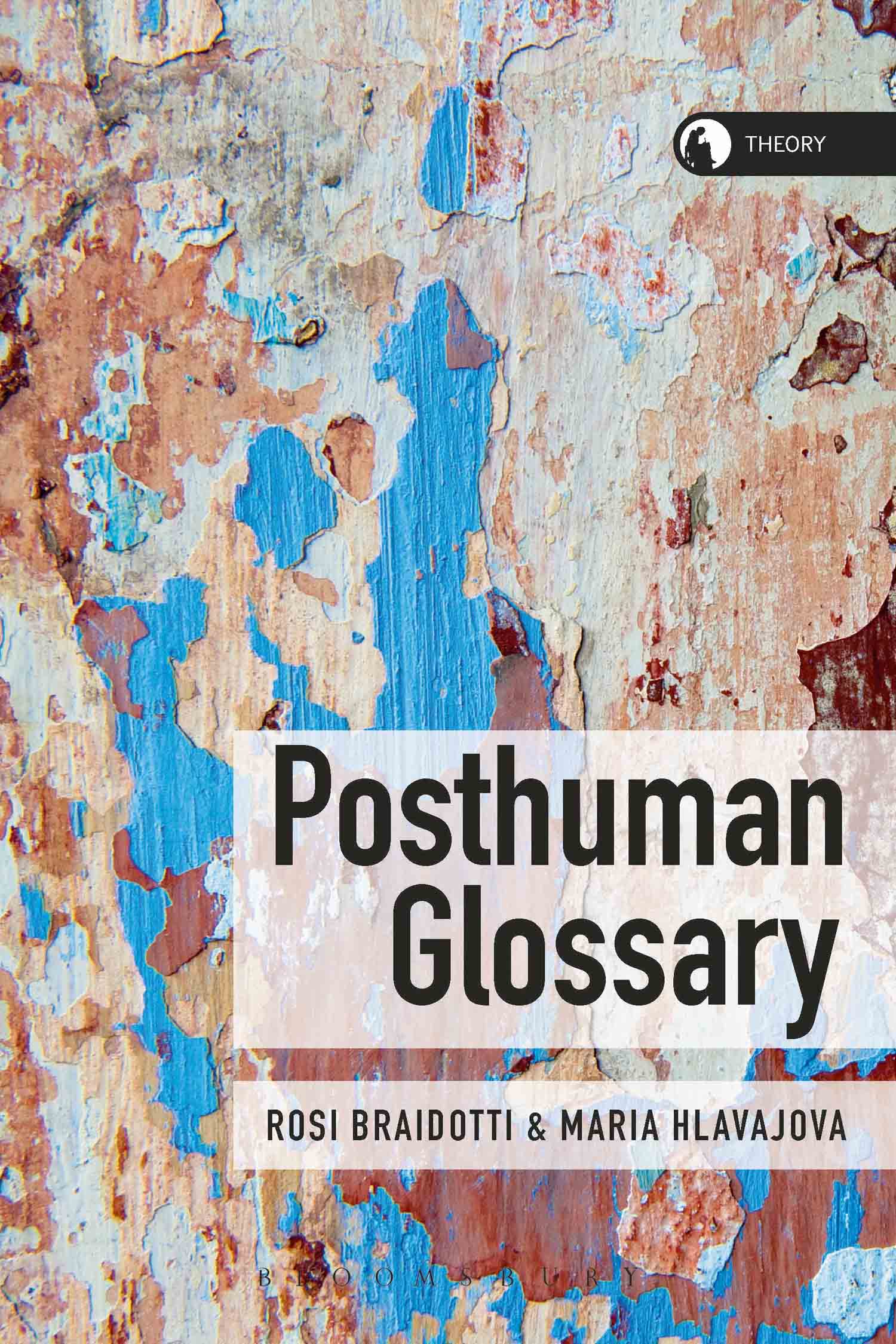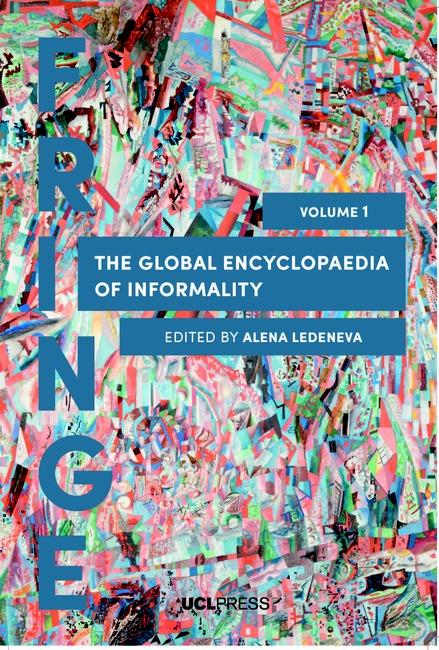Rosi Braidotti, Maria Hlavajova (eds.): Posthuman Glossary (2018)
Filed under book | Tags: · activism, algorithm, anthropocene, art, body, capitalism, capitalocene, cybernetics, ecology, feminism, human, inhuman, new materialism, philosophy, posthuman, posthumanism, theory

“If art, science, and the humanities have shared one thing, it was their common engagement with constructions and representations of the human. Under the pressure of new contemporary concerns, however, we are experiencing a “posthuman condition”; the combination of new developments–such as the neoliberal economics of global capitalism, migration, technological advances, environmental destruction on a mass scale, the perpetual war on terror and extensive security systems–with a troublesome reiteration of old, unresolved problems that mean the concept of the human as we had previously known it has undergone dramatic transformations.
The Posthuman Glossary> is a volume providing an outline of the critical terms of posthumanity in present-day artistic and intellectual work. It builds on the broad thematic topics of Anthropocene/Capitalocene, eco-sophies, digital activism, algorithmic cultures and security and the inhuman. It outlines potential artistic, intellectual, and activist itineraries of working through the complex reality of the ‘posthuman condition’, and creates an understanding of the altered meanings of art vis-à-vis critical present-day developments. It bridges missing links across disciplines, terminologies, constituencies and critical communities. This original work will unlock the terms of the posthuman for students and researchers alike.”
Publisher Bloomsbury Academic, 2018
Theory series
ISBN 1350030252, 9781350030251
xxxii+538 pages
The Global Encyclopaedia of Informality, 2 vols. (2018)
Filed under book, online resource | Tags: · blat, commodity, corruption, encyclopedia, gift, governance, informal economy, informality, market, social science, society, sociology, solidarity

“Alena Ledeneva invites you on a voyage of discovery to explore society’s open secrets, unwritten rules and know-how practices. Broadly defined as ‘ways of getting things done’, these invisible yet powerful informal practices tend to escape articulation in official discourse. They include emotion-driven exchanges of gifts or favours and tributes for services, interest-driven know-how (from informal welfare to informal employment and entrepreneurship), identity-driven practices of solidarity, and power-driven forms of co-optation and control. The paradox, or not, of the invisibility of these informal practices is their ubiquity. Expertly practised by insiders but often hidden from outsiders, informal practices are, as this book shows, deeply rooted all over the world, yet underestimated in policy. Entries from the five continents presented in this volume are samples of the truly global and ever-growing collection, made possible by a remarkable collaboration of over 200 scholars across disciplines and area studies. By mapping the grey zones, blurred boundaries, types of ambivalence and contexts of complexity, this book creates the first Global Map of Informality. The accompanying database (www.in-formality.com) is searchable by region, keyword or type of practice.”
Edited by Alena Ledeneva, with Anna Bailey, Sheelagh Barron, Costanza Curro, and Elizabeth Teague
Fringe series
Publisher UCL Press, London, 2018
Creative Commons BY 4.0 License
ISBN 9781911307907 & 9781787351899
xxix+434 & xxix+538 pages
Publisher, Vol. 2
OAPEN, Vol. 2
WorldCat, Vol. 2
Volume 1: PDF, PDF (10 MB)
Volume 2: PDF (15 MB)
Online resource (wiki)
Ruth Catlow, Marc Garrett, Nathan Jones, Sam Skinner (eds.): Artists Re:thinking the Blockchain (2017)
Filed under book | Tags: · algorithm, art, bitcoin, blockchain, cryptocurrency, data, money, trust, value

“The blockchain is widely heralded as the new internet – another dimension in an ever-faster, ever-more-powerful interlocking of ideas, actions and values. Principally the blockchain is a ledger distributed across a large array of machines that enables digital ownership and exchange without a central administering body. Within the arts it has profound implications as both a means of organising and distributing material, and as a new subject and medium for artistic exploration. This landmark publication brings together a diverse array of artists and researchers engaged with the blockchain, unpacking, critiquing and marking the arrival of it on the cultural landscape for a broad readership across the arts and humanities.”
Contributors: César Escudero Andaluz, Jaya Klara Brekke, Theodoros Chiotis, Ami Clarke, Simon Denny, The Design Informatics Research Centre (Edinburgh), Max Dovey, Mat Dryhurst, Primavera De Filippi, Peter Gomes, Elias Haase, Juhee Hahm, Max Hampshire, Kimberley ter Heerdt, Holly Herndon, Helen Kaplinsky, Paul Kolling, Elli Kuruş, Nikki Loef, Bjørn Magnhildøen, Rob Myers, Martín Nadal, Rachel O’Dwyer, Edward Picot, Paul Seidler, Hito Steyerl, Surfatial, Lina Theodorou, Pablo Velasco, Ben Vickers, Mark Waugh, Cecilia Wee, and Martin Zeilinger.
Publisher Torque Editions & Furtherfield, London, 2017
ISBN 0993248748, 9780993248740
344 pages
via Torque Editions
Reviews: Régine Debatty (We Make Money Not Art, 2017), Alessandro Ludovico (Neural, 2017).
Publisher
Distributor
WorldCat

